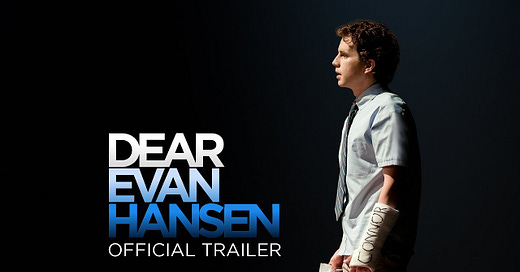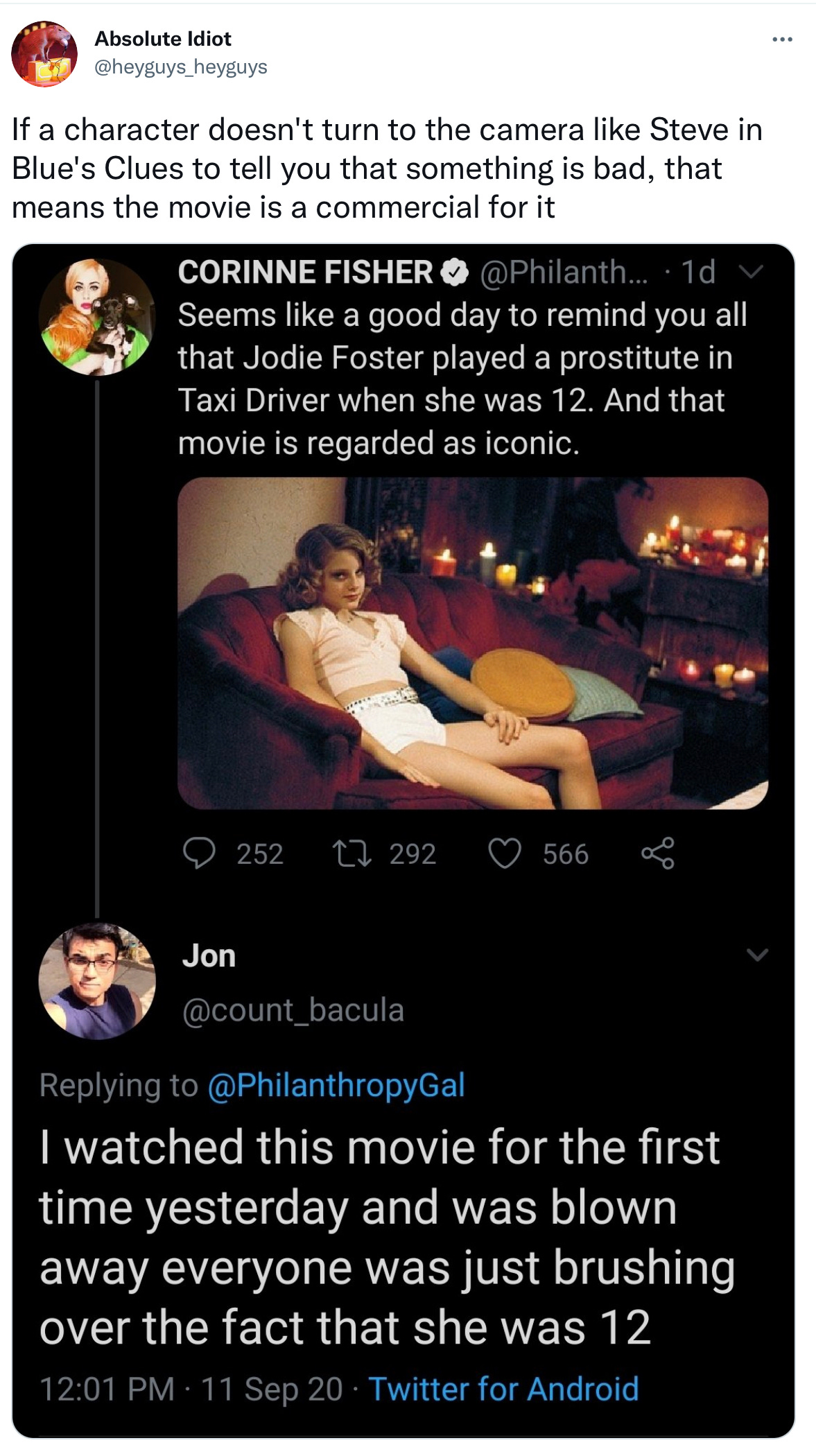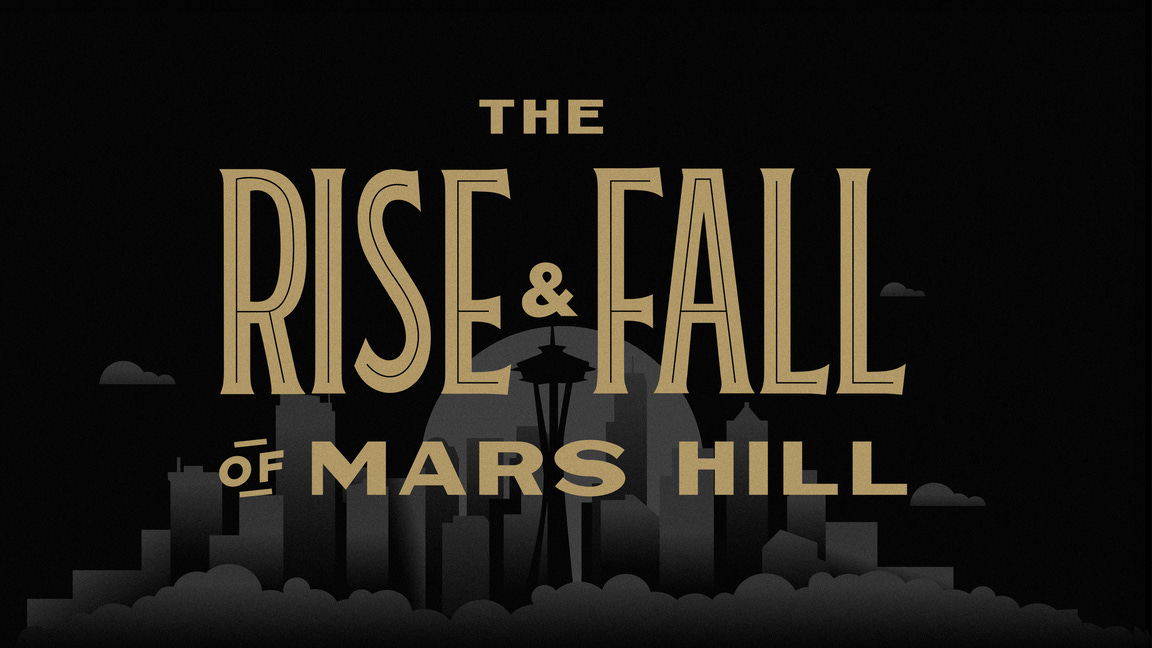UPDATE 12/30/21: I’ve decided to make both my books (Ophelia, Alive and Murder-Bears, Moonshine, and Mayhem) permanently available for free to everyone who signs up for my Substack. Click the link below to start reading both immediately:
Ever since I saw Dear Evan Hansen, I’ve been thinking about this tweet:
If you can’t see that, the gist is that a couple of tweeters talk about how shocking it is that the 1976 film Taxi Driver features Jodie Foster as a twelve-year-old prostitute, and a third replies, snarkily, that yes, obviously, the fact that the film depicts something means that the filmmakers endorse it. Of course, if you watch Taxi Driver, you’ll find that it makes it pretty clear that Foster’s character is in a terrible situation, leading Robert DeNiro’s titular character to go on a murderous rampage and rescue her in the film’s climax. And, yes, Captain Morality, it’s true that murderous rampages are also bad, but the film isn’t an advertisement for murderous rampages, either; it’s a story, not a how-to manual. Its purpose, arguably, is to hold a mirror up to the world and show it for what it is: a bleak, postmodern dystopia that’s been abandoned by moral authority, where it’s hard to know what’s right or wrong and probably impossible to even make a real difference. It’s a conclusion you can agree or disagree with, but it’s miles away from “Hey kids! Go be child prostitutes and murderous vigilantes!”
Anyway, I’ve been thinking about this ever since I saw the brutal critical response to the new movie version of Dear Evan Hansen — which probably isn’t a masterpiece like Taxi Driver, but has arguably been subjected to the same sort of willfully-ignorant condemnation. The film, based on the 2015 stage musical of the same name, tells the story of a high school senior who, desperate for attention, inserts himself into the drama following the suicide of a classmate who’s a near-stranger to him, and inadvertently launches an online movement in the process. Since its debut at the Toronto International Film Festival, the armies of critics have come out to say, “Wait a second! That’s bad! Making someone else’s suicide all about yourself is what you’re not supposed to do!”
Which — sigh.
I should lay my cards on the table here and admit that I loved this movie. Granted, I’m a sucker for both high school movies and musicals (ask me about my grown–man–obsessed–with–High School Musical phase sometime) — so I was predisposed to like it, but I wasn’t a superfan of the play when I walked in, or anything. I bought my ticket knowing relatively little about the show, and the movie won me over — I walked out of the theater Spotify-ing the soundtrack and wondering when I could see it again. So clearly the film did at least a few things right. (Its 90% audience approval rating at Rotten Tomatoes suggests I’m not alone, so to speak.)
I can’t really argue with a lot of the technical criticisms that have cropped up in reviews. No, Ben Platt, at twenty-seven, is not a convincing teenager (but then, nearly every teen movie has that problem). Yes, his performance is much better suited to the stage. The sound mixing is subpar, to the point that it’s often hard to hear plot-relevant lyrics over the instrumentation. And the thing drags in the latter half of the second act (which is a common problem of movie adaptations of stage musicals, but still). It’s not a perfect film.
What I’m honestly a little bewildered by, though — especially given that we’ve all known the premise of this show since it won a bunch of Tonys in 2017 — is the rush to condemn it morally. In The New York Times, critic Jeanette Catsoulis writes that Evan Hansen “turns villain into victim and grief into an exploitable vulnerability,” while The Guardian’s Adrian Horton reminds us that Evan “exploits a near-stranger’s suicide for popularity,” which you know is bad, because she uses italics. And over at Vox, Alissa Wilkinson (whom I know a bit online, and who seems nice) laments that Evan isn’t punished severely enough for his wrongs.
All of this is puzzling to me, mainly because professional film critics are supposed to be the sort of people who can watch a movie with the understanding that it might have a greater purpose than being a moral exemplar — the sort of people who can understand that Taxi Driver isn’t a commercial for child prostitution and that Dear Evan Hansen isn’t a commercial for using an acquaintance’s suicide to bolster your social life. As I see it, Dear Evan Hansen expresses truths about the post-internet world that, like the truths expressed in Taxi Driver, are uncomfortable but nevertheless need to be said: Online activism often means less than nothing. Virality and actual value are often mutually opposed. Cultures that treat trauma as social capital tend to invite people to invent or exaggerate trauma. Universal love for mankind rarely translates into active love for individuals. Righteous mobs almost never go after deserving targets.
None of those are pleasant truths, but I’m convinced that they’re all pretty accurate. Unfortunately, they’re also the sort of truths that the blue-checkmark set, which makes up most of the critical establishment, will be loath to acknowledge.
That is, when you’re invested in a system, you’ll be reluctant to acknowledge its flaws. I grew up occasionally reading evangelical magazines devoted to morally condemning films, like PluggedIn and Movieguide, so I know how this sort of thing goes: The Christian critics in those publications would count nipples and f-words, sure, but they would always save their strongest condemnation for films that leveled critiques — fair or otherwise — at the Christian faith. When your livelihood is dependent on an institution’s continued existence, the instinct to defend it becomes automatic.
I suspect there’s something similar going on with online mob culture and Dear Evan Hansen. For the last decade or so, having a career in media has all but depended on having a Very Online presence — one where you could schmooze with other media types and (more to the point) publicly demonstrate that you were on The Right Side of Very Important Issues. You might think that Donald Trump’s masterful hijacking of online silliness to force his way into the Oval Office in 2016 would have cooled the media class’s excitement over internet activism a bit, but you’d be wrong — the moral panic brought on by Trumpism (along with a continued economic decline of the media) has turned Twitter into a nearly intolerable place where mobs of blue checks are constantly rushing to condemn whatever the Bad Thing of the Moment is, in a quest for continued employment and “moral clarity” that often looks suspiciously similar to a good, old-fashioned witch hunt. If anything has changed about online culture between Dear Evan Hansen’s stage debut in 2015 and now, it’s mostly that we just skip over the cathartic exultation of the show’s first act and go right to act two’s fickle condemnation of anything and everything, which … yeah, nah, that tracks with the film’s critical reception pretty much exactly.
None of that means, mind you, that Dear Evan Hansen is a great film. Like I said, it’s got some problems. But if your tastes in cinema align with mine at all, you’ll probably dig it. If you feel like braving a COVID-filled theater, check it out.
Or at least have a listen to the soundtrack. It’s got some bangers.
Stuff I’ve been enjoying lately
If you were at all adjacent to Reformed Christianity in the early twenty-first century, you were probably vaguely aware of a megachurch in Seattle called Mars Hill pastored by a guy named Mark Driscoll. “Vaguely aware” describes me pretty well, since I’m not generally the kind of person who cares about what’s trendy, especially when it comes to Christianity (who needs Driscoll when you’ve got Aquinas, am I right, folks), but it was hard to escape Mars Hill’s influence, even if you weren’t consciously aware of it. Every Presbyterian or Baptist pastor wanted to be Mark; every progressive Christian blogger wanted to think of a new excuse to hate him (which, to be clear, usually wasn’t hard). Mars Hill was huge — until the whole thing collapsed.
Anyway, Mike Cosper (a former trendy megachurch pastor himself) is doing an unblinking look at all of the abuses that led to Mars Hill caving in, and the resulting podcast — The Rise and Fall of Mars Hill — is topping charts everywhere, for good reason. It’s hard to ask for something more introspective or more empathetic to an abusive culture’s victims. Check it out.
Me, elsewhere
Speaking of how the internet incentivizes people to invent trauma, I had a whole conversation about that (and some other stuff) with author Leigh Stein. Listen to it here.
Speaking of Christianity, Grunge is really pumping out the Christianity-adjacent content these days. I don’t know why they’re so religion-happy, but here are a couple things I wrote for them about the Apostle Paul and Archbishop Fulton J. Sheen.
I dunno, buy my books, I guess?
CORRECTION: Sigh…yes, I know I accidentally called Jodie Foster “Brooke Shields” twice in the original post. It’s edited now.






